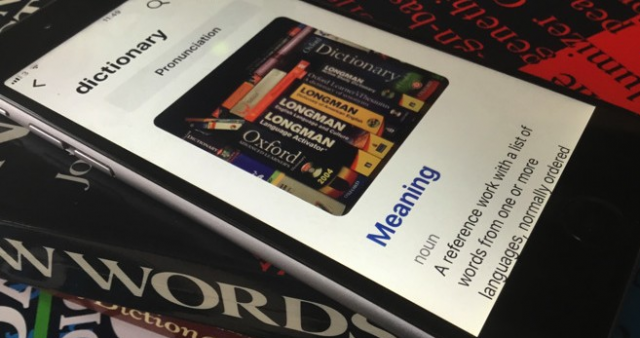Online Dictionary are becoming an integral element of the writing and reading cultures. Most individuals use Online Dictionary to determine the meaning of words they encounter while reading. However, because so many of them are on the internet dictionary english, you must know which dictionary to use in particular situations. This article supplies a comprehensive summary of the best dictionaries on the web, their distinguishing features, and their pros and disadvantages scrabble dictionary.
Best 8+ Online Dictionary
1. Wiktionary Online Dictionary
Wiktionary, founded on an ideology similar to Wikipedia’s, goes beyond the standard dictionary to provide an in-depth explanation for words through definitions and illustrations dictionary online.
It includes useful features such as autosuggest, pronunciation, synonyms, etymology, anagrams, and related terms. It includes additional features, including the Thesaurus, linguistic statistics, large appendices, and phrasebooks.
Pros
- The etymology feature allows users to learn about the origin of a word.
- It supports several languages.
- The “anagrams” function allows you to learn new terms by rearranging letters in a word.
Cons
- Users doubt their credibility since they can modify anything on the web.
2. Collins English Dictionary
Collins Dictionary is a great resource for students, translators, and teachers. Collins is the essence of top-tier features, with over 4.5 billion words. It has unique choices for helping you improve your grammar and fluency. Thesaurus, video, translator, and scrabble are among them. Its search engine features an autosuggest function that allows you to find the word you’re looking for by inputting just a few characters.
Pros
- It has multiple options to allow for different searches to help them improve their grammar, vocabulary, and pronunciation.
- Features over 4.5 billion words
- There are both audio and video pronunciations available.
Cons
- It does not contain any urban words.
- The translator mode does not always provide accurate translations.
3. Google Dictionary
Google Dictionary is one of the most well-known dictionaries since it has one of the most extensive online word directories.
Its most unique feature is that it supports several languages. It includes synonyms, use case examples, antonyms, and a word’s origin. It also has an audio pronunciation tool, autosuggest, and shows a word’s present tense, past tense, present, and past participle.
Pros
- It supports several languages.
- It carries Google’s brand’s credibility and dependability.
- It boasts practically every English word’s meaning.
Cons
- Word translations are not always accurate.
- There are worries that it lacks traditional English words.
4. Cambridge Dictionary
Another well-known online dictionary for official and academic uses is Cambridge Dictionary. It has three remarkable features: a dictionary, a grammar checker, and a translator. The dictionary supports over 20 languages. Audio pronunciations, phrasal verbs, thesaurus, and idioms are among the other features dictionary english to spanish.
Pros
- Idioms, American English, learners, foreign, and phrasal verb dictionaries are included in the online version.
- The features of pronunciation, synonyms, and translations assist users in expanding their vocabulary.
- Several languages are supported english dictionary.
Cons
- It boasts a lot of information, making it difficult to get the intended outcomes.
5. Dictionary.com
Dictionary.com, which has been in operation for more than two decades, is a high-quality dictionary that has earned the confidence of millions of users worldwide. It boasts audio pronunciation, idioms, synonyms, word origins, and slang phrases. Most traditional sources of word definitions on the internet.
Pros
- It features a word dictionary developed over the last two decades.
- It has excellent features like word games, synonyms, slang words, audio pronunciation, and more.
- It offers definitions for medical terms and word use examples in sentences.
Cons
- Some users are unhappy with its partnership with Ask.com.
6. Urban Dictionary
An online urban dictionary provides definitions, pronunciation, and synonyms for urban words or slang. Although it is not useful for researchers and academics, it can assist you in deciphering slang or urban words you encounter on the internet. It defines terms often heard on the streets.
Pros
- It includes words that are not often encountered in ordinary dictionaries.
- It boasts fresh words from the streets or those acquired from show business.
Cons
- It lacks more formal words.
- You may have to conduct many searches to obtain the appropriate results.
7. Oxford English Dictionary
Oxford online dictionary is a strong platform that helps define British and American English words. It is often regarded as the best tool for students and learners.
Oxford dictionary features images, sample phrases, synonyms, and audio pronunciation, among other things, to improve clarity. It also boasts key symbols demonstrating how vital a word is to the English language. It is an excellent oxford english dictionary for writing a thesis or research paper.
Pros
- It is one of the oldest and most reliable online dictionaries.
- The wordfinder function aids vocabulary development by allowing you to learn more about related words.
- It boasts both American and British pronunciations.
Cons
- There are accusations that the dictionary has complex word definitions and ambiguous explanations.
8. Macmillan Dictionary
The Macmillan dictionary is the ideal location to learn something new every day. It is fully integrated with Thesaurus and gives synonyms and many related terms. It is one of the greatest dictionaries for English-speaking users worldwide. It includes stars and colors to show how frequently words in English are used online dictionary.
Pros
- Every word in this dictionary refers to a thesaurus entry.
- It describes words using widely used English terms.
- It features new words every day to help you improve your grammar.
Cons
- When compared to other dictionaries, it contains fewer features.








